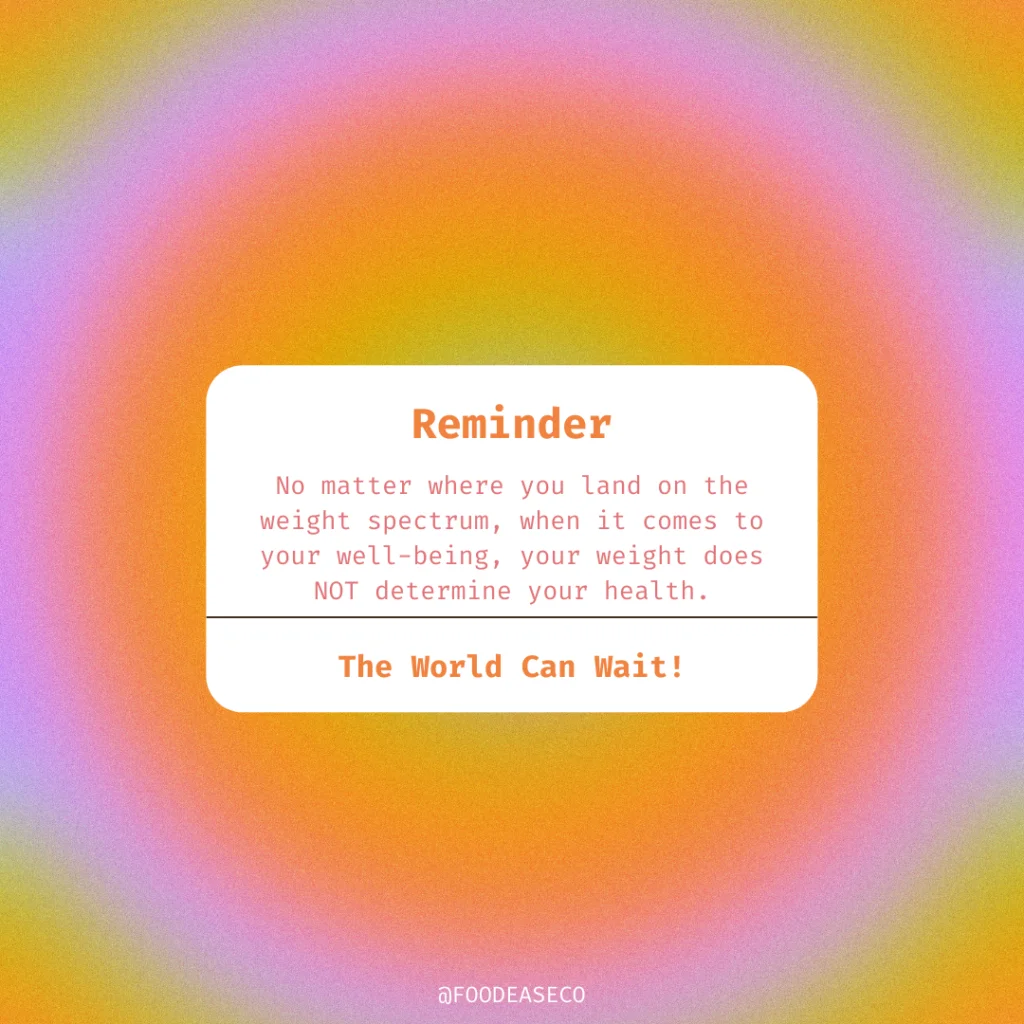The Racist Origins of BMI (Body Mass Index)

Introduction
I want to interrupt our regular scheduled (Intuitive Eating) program to discuss BMI. BMI stands for “body mass index” and is widely used in the medical field to quantify “health.” It is simply a formula that takes into account our height and weight and spits out a number that corresponds to a scale that tell us if we are “underweight” or “overweight.”
There are many reasons why this scale is problematic. First, let’s discuss how BMI came into use:
Nearly 200 years ago, an astronomer named Adolphe Quetelet, created the Quetelet scale. It was originally created to quantify the mathematical mean of a population’s weight, which he considered to be the “ideal” weight. In other words, it was created solely based on the size and measurements by and for white Western Europeans.(Karasu, 2016).

This same man is credited with the positivist criminology belief that “asserted the dangerousness of the criminal to be only a measure of the extent to which he was punishable,” which laid the groundwork for other criminologists who believed people of color were a separate species.
BMI in the U.S.
Weight became a primary indicator of health in the early 20th century when life insurance companies began compiling tables of height and weight to figure out what to charge prospective policyholders.
As it turns out, these tables were deeply biased, only representing those with resources and ability to purchase the life insurance policies in the first place (aka the white elite).
Even though these tables were created and used by INSURERS, physicians actually started to adopt them as a way to evaluate their patients’ health.
Is There a Better Way?
Some hope emerged when researchers decided to find a better way to evaluate health in the 1970’s. After drawing data from predominantly white nations, BMI was still found to be the strongest of three weak measures because it accurately diagnosed someone as “overweight” about 50% of the time.
The Issues
1. This goes without saying, but the fact that BMI numbers are based on weights of European White inherently makes it non-inclusive for anyone of another race. This is inherently racist.
2. The medical field uses BMI as a measure to quantify “health” without taking in any other measure of body composition, gender, or race/ethnicity. Regardless, we’ve seen in research time and time again that being at a higher weight does not necessarily equate to being “unhealthy.” Actually, weight stigma and weight cycling have been shown to be independent risk factors of negative health outcomes independent of weight.
3. People with higher BMIs are subject to weight bias, which may result in lower quality of care. When the amount of fat a patient has is at the center of their care, often other issues can fall by the way-side, especially undiagnosed eating disorders. When people in large bodies experience this when seeking care, they’ll often forgo seeking care at all, which could lead to worsening health outcomes.
I was first introduced to BMI when I was in elementary school and we were weighed in front of the entire class. Even before that moment, I was aware that my body was a bit larger than some of my classmates. Clearly, this practice does more harm than good for all the reasons mentioned above. This practice is still widely used in schools today.
Years following, when I was weighed at my pediatrician’s office, I was hyper aware that my weight always fell in one of the “o” categories of the BMI scale. Even though no one was explicitly telling me to lose weight, my own internalized fat phobic voice was screaming that I need to always be dieting in an effort to lose weight.
Even while in my nutrition education, I was never told about the inherent racist implications of using BMI or the fact that is a totally bogus measure of “health.”
My own anti-fat attitudes were crippling and further played into my restriction on food and perpetuated my disordered eating habits.
We’re taught from an early age that fat is bad, which further deepens our anti-fat attitudes as a society. I hope this article shown some light on the deep-rooted issues of using BMI to quantify health, and the emphasis we put on this number as a society.
For more about the racist roots of BMI, check out Sabrina Strings’ podcast episode on Food Psych here.
Cheers to better body image, smashing the scale, and accepting bodies of ALL shapes and sizes!
References
- Adalbert Albrecht, Cesare Lombroso, 1 J. Am. Inst. Crim. L. & Criminology 237 (May 1910 to March 1911)
- Karasu, S. (2016, March 18). Adolphe Quetelet and the evolution of body mass Index (BMI). Retrieved April 30, 2021, from https://www.psychologytoday.com/us/blog/the-gravity-weight/201603/adolphe-quetelet-and-the-evolution-body-mass-index-bmi
- Hunger, Jeffrey M., Joslyn P. Smith, and A. Janet Tomiyama. “An evidence‐based rationale for adopting weight‐inclusive health policy.” Social Issues and Policy Review 14.1 (2020): 73-107.
- Field, A., Manson, J., Taylor, C. et al. Association of weight change, weight control practices, and weight cycling among women in the Nurses’ Health Study II. Int J Obes 28, 1134–1142 (2004). https://doi.org/10.1038/sj.ijo.0802728
- Udo, Tomoko et al. “Perceived weight discrimination and chronic medical conditions in adults with overweight and obesity.” International journal of clinical practice vol. 70,12 (2016): 1003-1011. doi:10.1111/ijcp.12902
Have a Question?


Do you have any questions or suggestions? Feel free to contact us! Just leave your email here, and we will get back to you shortly.